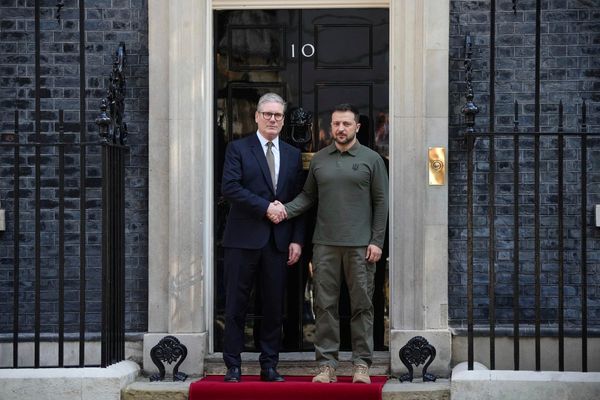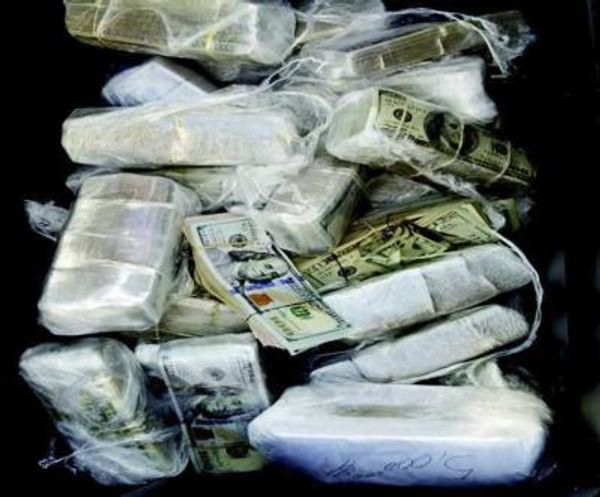
“Actually, this is one of the things that Al-Ahli Arab Hospital is well known for: services with compassionate love. The patient and family should be met with a big smile. It never happened that anyone entered with arms to this hospital. If there is one coming with his arms, nobody will work. We are not working under any threat.”
So said Suhaila Tarazi, director of Al-Ahli Hospital, in 2020 in a conversation in her office over Arabic coffee.
The Christian-led hospital in Gaza’s old city has always provided care to the poorest people of Gaza free and regardless of ethnicity, religion or political affiliation. Tarazi eagerly laid across her desk the architect plans for a building for Gaza’s first radiotherapy machine. They were to focus first on treating women with breast cancer.
On Friday, patchy news filtered out of a siege by Israeli tanks around Al-Ahli, as the hospital, the last operational facility in northern Gaza, confirmed it was no longer able to provide surgeries. We lost contact with our healthcare colleagues who have been working around the clock in the hospital for weeks.
Hospitals across the Gaza Strip are almost completely incapacitated due to direct bombing and shelling, forced expulsions and a lack of fuel, water, medical supplies and healthcare staff. More than 200 healthcare workers have been killed by Israel in Gaza since October 7, the independent initiative Healthcare Workers Watch claims.
Yet we watch aghast at the moral leadership failures from some of the most powerful medical bodies in the world, and a public dialogue now normalising the killing of doctors, nurses, paramedics, physiotherapists, dentists and patients. A post on X from BBC Question Time last week asked the audience to ponder: “Is the Israeli targeting of a hospital justified?”
After the strike on Al-Ahli on October 17, which Gaza’s health ministry said killed 471 Palestinians and wounded 314, Tarazi messaged via WhatsApp: “Most of the hospital buildings are severely affected. However, we insisted to keep this hospital neutral and start working again to show the love of Jesus to all who seek Al-Ahli services. I pray for the safety of my staff.”
In visits over recent years to undertake research, education and mentoring on palliative care, I have spent time in several hospitals and healthcare clinics across the Gaza Strip. Here is what I have seen.
In the Al-Rantisi Paediatric Specialised Hospital, devoted staff supported children with cancer. On the third floor, set up by the Palestinian Children’s Relief Fund, stood a colourful room with a kitchen for sick children to bake cakes and for clowns to cheer them. They proudly boasted their Make-A-Wish program, where a child dreaming of becoming chef cooked in a local restaurant, or a child with lawyer aspirations took charge of an important desk in a legal practice.
I asked Hammad, a 13-year-old boy with leukaemia, what the most important thing to him was in that moment. “I would like a mobile phone”, he replied, “to play games and use the internet.” Rantisi was bombed on November 5, and the young patients, their families, staff and sheltering displaced people were forced to evacuate south.
In Al-Amal Hospital, a facility of the Palestinian Red Crescent Society, Dr Jean Calder — a Companion of the Order of Australia recipient and an Australian humanitarian who had made Gaza her home — lay dying. Calder’s family gently wet her lips with ice chips and stroked her hair. She was surrounded by the love of her family, friends, staff and an entire Gazan community in her death. Al-Amal has had no electricity or water to care for its patients for several days.
In Al-Wafa Hospital — Gaza’s only facility dedicated to caring for older people and those with long-term disabilities, and a refuge for those with nowhere to go — a physiotherapist and speech therapist worked to improve the function of a man with a severe neurological condition and to educate his family in caring for him at home. Israeli forces targeted Al-Wafa on Friday, killing the hospital director and injuring many others.
In Al-Nasr Paediatric Hospital, nurses deftly moved around the hum of babies in incubators, while mothers placed them on bare skin to warm them. The staffroom walls were plastered with birthday celebrations and words of gratitude. Those staff were forced to flee without their small patients last week as the hospital came under heavy shelling and evacuation orders.
In the European Gaza Hospital, now out of water and having to cope with an influx of patients fleeing from the north, a nurse giggled in camaraderie as we compared the almost identical leopard print of my skirt and her scarf.
A doctor proudly discussed a new program at Al-Shifa Hospital for people with prolonged pain. The Palestinian Medical Relief Society showed photos of a festive garden party for families affected by diabetes and heart disease, and a doctor bought baklava for a depressed young man with gunshot wounds and translated: “I’m just supporting him and telling him that we really love him.”
The Assalama Society for the Wounded and Disabled ran football matches for teenage amputees. The Aid and Hope Program, a volunteer network promoting the health and rights of women affected by cancer, greeted visitors with office signage that read: “Always make time to do the things that make you happy to feel alive.”
These and the many other hospitals and healthcare facilities across Gaza are sanctuaries of care and healing. They are places of sharing small joys and grasping the sadness that comes with ordinary illness, dying and bereavement. They tend not only to medical care but to the recuperation of altered bodies and the rebuilding of shattered dreams, and provide a quiet presence when not all suffering can be mended. They operate with the limited resources inflicted through years of occupation and blockade and amplify those resources with ingenuity and unconquerable spirit. They are not houses of violence or evil.
In Al-Ahli Hospital, Tarazi spoke on through our second or third coffee: “The simplest thing that we can provide even if we don’t have the capacity or the means to offer anything else, the simplest thing is to be compassionate with your patients. This place is a place of hope.”







